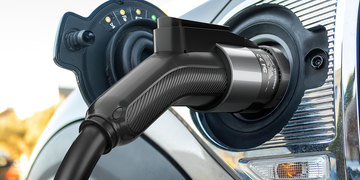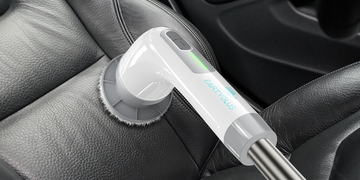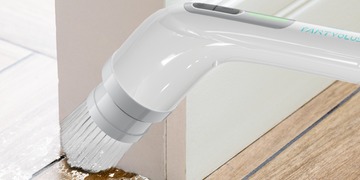Can You Use a Tesla Wall Charger for Other Cars? Yes, you need a Tesla adapter to use it, Vehicle Compatibility Wall Connector is compatible with most electric vehicles including Tesla vehicles and non-Tesla electric vehicles. Make sure the Wall Connector you are purchasing has a plug that matches the charging inlet on your electric vehicle.
Tesla, a pioneer in the electric vehicle industry, offers a range of charging options, including their renowned Tesla Wall Connector. However, a common question among EV owners is whether they can utilize a Tesla Wall Charger for vehicles other than Tesla models. Let's delve into this query and uncover the nuances of compatibility.
Understanding the Tesla Wall Connector
The Tesla Wall Connector is a sleek and efficient charging solution designed primarily for Tesla vehicles. It offers faster charging speeds compared to standard Level 1 chargers and can be easily installed in residential or commercial settings. With customizable power levels and smart features, the Tesla Wall Connector provides Tesla owners with a seamless charging experience at home.
Compatibility Considerations
While the Tesla Wall Connector is optimized for Tesla vehicles, its compatibility with other electric cars depends on several factors:
Connector Type: The Tesla Wall Connector typically comes with a proprietary connector designed specifically for Tesla vehicles. This connector differs from the standard J1772 connector used by many non-Tesla EVs in North America and the Type 2 connector commonly used in Europe.
Voltage and Amperage: Tesla Wall Connectors are designed to work with Tesla's charging specifications, which may not align perfectly with other EV manufacturers' requirements. While some non-Tesla EVs can technically be charged using the Tesla Wall Connector, it may not deliver the optimal charging performance or be fully compatible with all models.
Communication Protocols: Tesla vehicles communicate with the Tesla Wall Connector using proprietary protocols to optimize charging parameters. Other EVs may not support these protocols, potentially limiting functionality and safety features when using a Tesla charger.
Can You Use a Tesla Wall Charger for Other Cars?
Using a Tesla Wall Connector to charge vehicles other than Tesla models is possible with the use of appropriate adapters. The Tesla Wall Connector typically comes with a proprietary connector designed specifically for Tesla vehicles. However, third-party adapters are available that allow non-Tesla EV owners to connect their vehicles to a Tesla Wall Connector.
These adapters typically convert the Tesla connector to the standard J1772 connector used by many non-Tesla EVs in North America or the Type 2 connector commonly used in Europe. By using such adapters, owners of electric cars from manufacturers other than Tesla can take advantage of Tesla charging infrastructure, including the Tesla Wall Connector, for charging their vehicles.
It's important to note that while adapters enable compatibility, there may be limitations in charging speed and functionality compared to using a dedicated charger designed specifically for the non-Tesla EV. Additionally, it's crucial to ensure that any adapter used is of high quality and compliant with safety standards to avoid any potential issues during charging.
While the Tesla Wall Connector is primarily intended for Tesla vehicles, it can be used to charge other electric cars with the appropriate adapters. However, owners should be mindful of potential limitations and safety considerations when using adapters and ensure they are compatible with their specific EV model.

Telgeoot J1772 to Tesla Charger Adapter
Enter the Telgeoot J1772 to Tesla Charger Adapter, a third-party solution aiming to bridge the compatibility gap and empower EV drivers with greater charging flexibility. Let's delve into what this adapter offers and how it enhances the EV charging experience.
Understanding the Telgeoot Adapter
The Telgeoot J1772 to Tesla Charger Adapter is designed to enable non-Tesla electric vehicles equipped with a J1772 port to connect to Tesla's charging infrastructure seamlessly. The adapter serves as a bridge between the J1772 connector, commonly found in many electric cars, and the proprietary Tesla connector used in Tesla's charging equipment, including the Wall Connector.
Features and Benefits
Compatibility: The primary function of the Telgeoot adapter is to facilitate compatibility between J1772-equipped electric vehicles and Tesla charging stations. This opens up a wider range of charging options for EV owners, allowing them to access Tesla's extensive Supercharger network and destination chargers.
Versatility: With the Telgeoot adapter, EV drivers can enjoy the convenience of using Tesla charging infrastructure without the need for additional modifications to their vehicles. This versatility is particularly valuable for drivers who may have access to Tesla chargers in their area but own non-Tesla electric cars.
Ease of Use: The adapter is designed for plug-and-play functionality, making it easy to use for EV owners. Simply plug the J1772 end of the adapter into the vehicle's charging port, and connect the Tesla connector to the Tesla charging station. This simplicity ensures a hassle-free charging experience for users.
Compact Design: The Telgeoot adapter features a compact and lightweight design, making it portable and easy to carry in the vehicle. Its small form factor adds to its convenience, allowing users to store it in the trunk or glove compartment for whenever charging on the go is needed.
The Telgeoot J1772 to Tesla Charger Adapter offers a practical solution for non-Tesla electric vehicle owners looking to access Tesla's extensive charging infrastructure. With its compatibility, versatility, and ease of use, the adapter enhances the charging experience for EV drivers, providing greater flexibility and convenience. However, users should be mindful of considerations such as charging speed, compatibility, and safety when using third-party adapters. By leveraging solutions like the Telgeoot adapter, EV owners can maximize the utility of their electric vehicles and embrace the transition to sustainable transportation with confidence.





